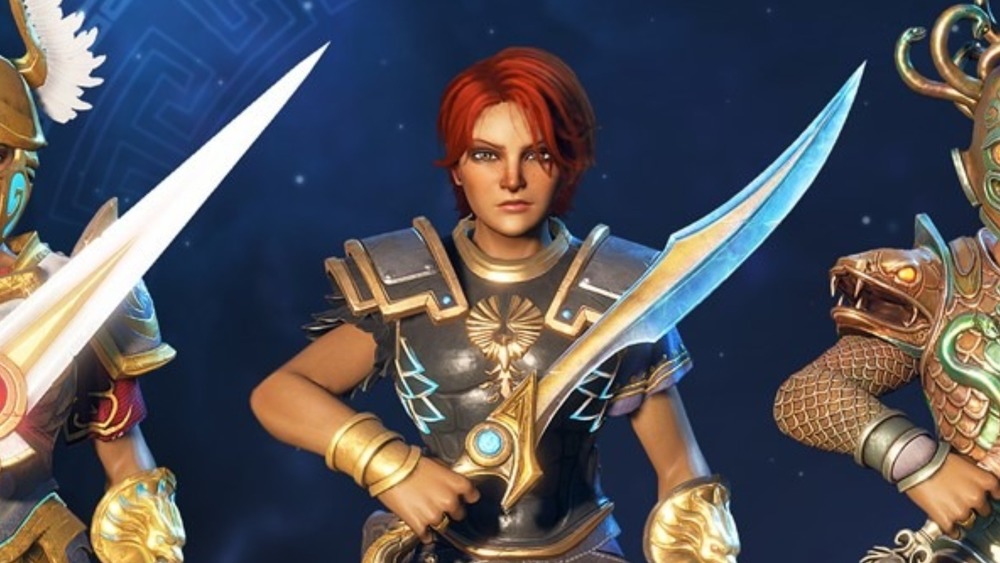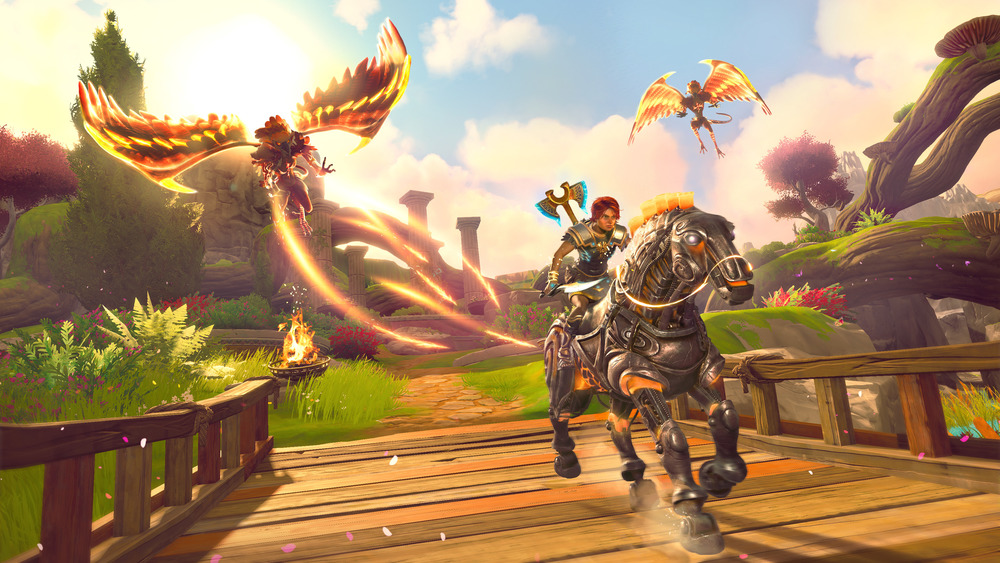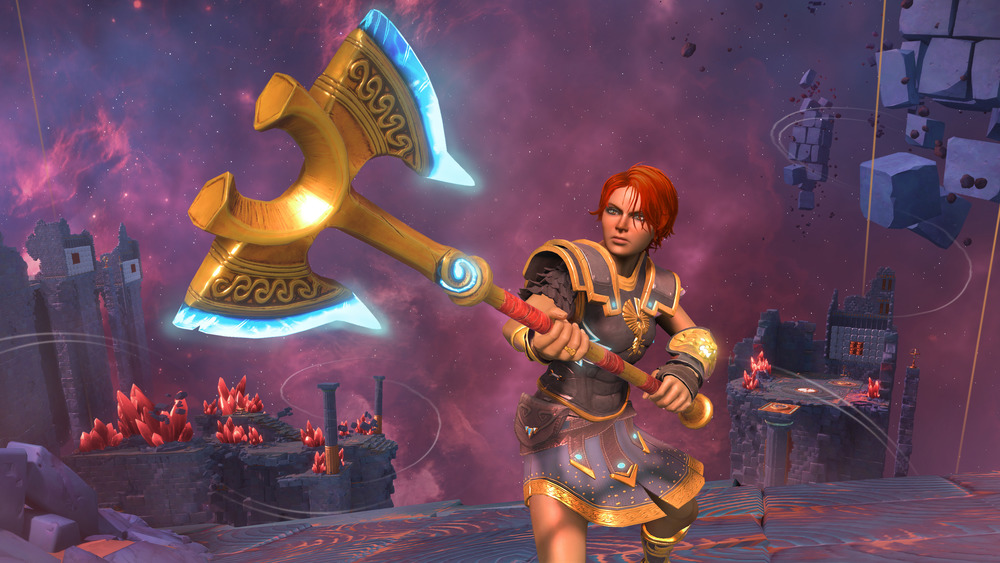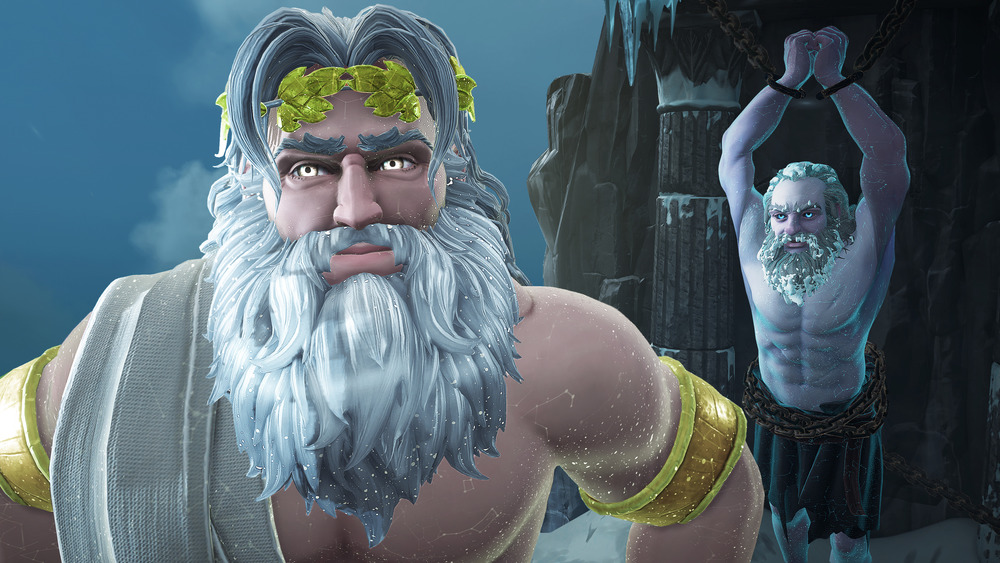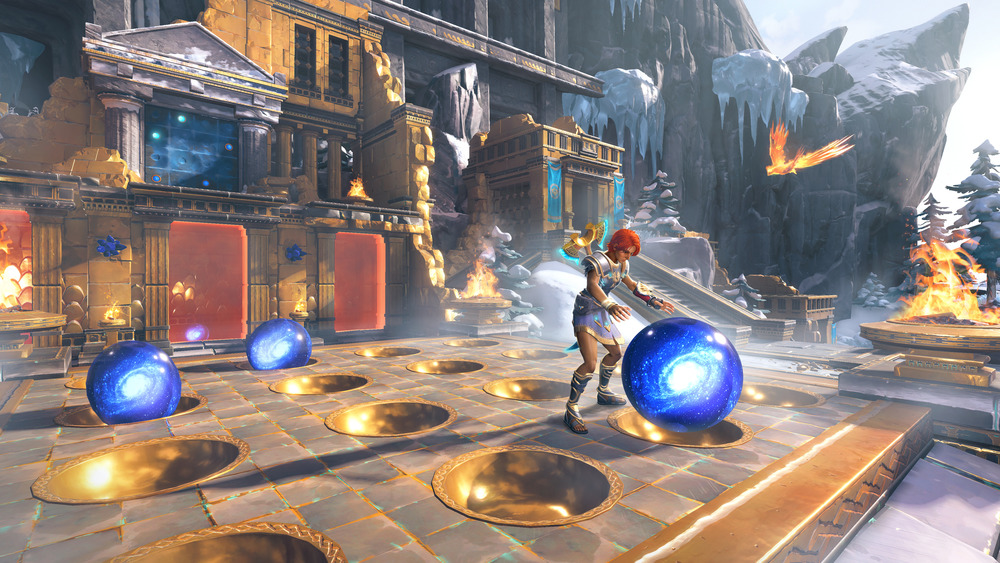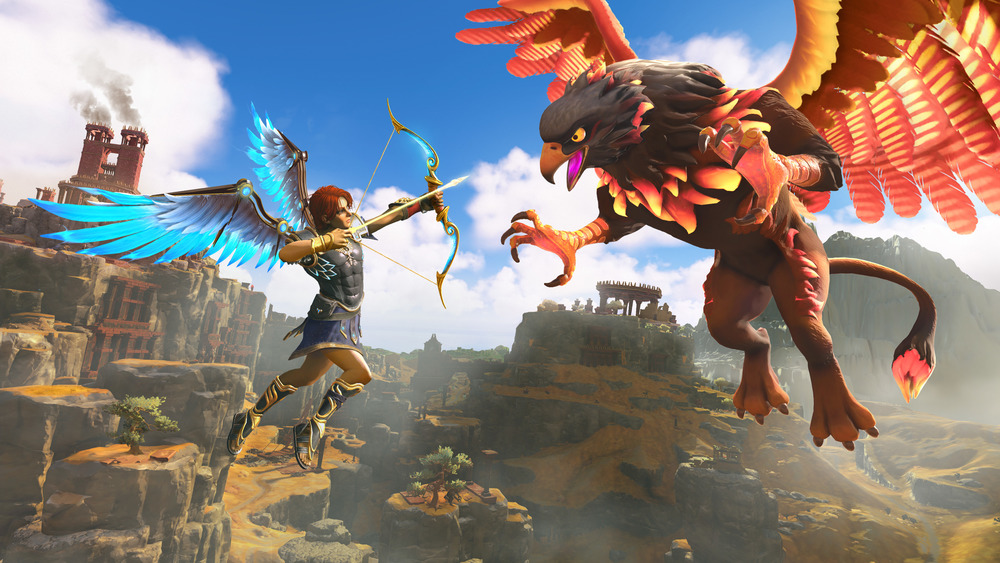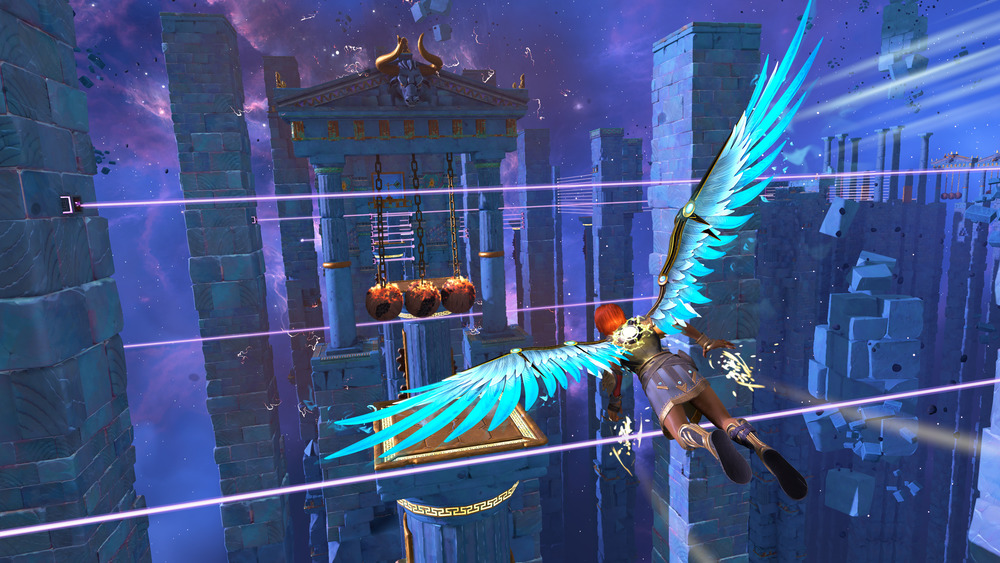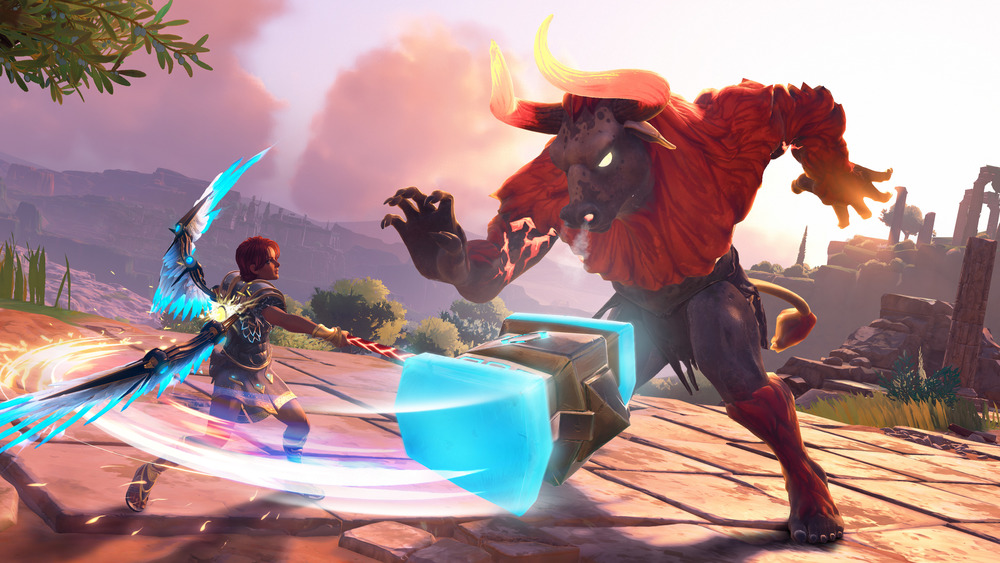Immortals Fenyx Rising Ending Explained
Immortals Fenyx Rising wears its inspirations very plainly. It's developed by essentially the same team that worked on Assassin's Creed Odyssey, and that experience shows in both the story and gameplay. It also was rightly identified as having many similarities to The Legend of Zelda: Breath of the Wild, though it had plenty of its own original ideas as well.
One thing a lot of people probably didn't count on with Immortals Fenyx Rising when it was first announced was how well-written it would be. Many reviews praised the game's writing, voice acting and storytelling, and its overall themes. At its core, Immortals is all about storytelling -– the framing device between Prometheus and Zeus is a story, Fenyx (who can be male or female, but is female for the purposes of this piece) is also known as a scholar and storyteller, and many of the game's best surprises come from subverting popular stories most people already know about Greek myths.
The ending of Immortals completely capitalizes on that, bringing everything full circle to hammer home the power of storytelling. Beware, there are complete spoilers ahead! Here's how the ending plays out.
Fenyx learns the truth of her brother
One of the biggest thematic elements of Immortals Fenyx Rising deals with its view on family. Even in kid-friendly versions of Greek myth, the gods have a pretty messed up family life. Fenyx is also dealing with some serious issues of her own -– mainly, living in the shadow of her brother, Ligyron.
In the game's final act, Fenyx learns the horrible truth: the stories about Ligyron's incredible heroism are completely made up, and he's actually working with Typhon to overthrow the gods. Even worse, when Ligyron admits to it all, he even cites an unbelievable inspiration: Fenyx. That's right, Ligyron learned it by watching you! Fenyx is a well-known storyteller, and Ligyron's silver tongue was inspired by his sibling. It plays nicely into the cycle of the dysfunctional family that the game highlights with Zeus and his children, and it shows that cycle isn't only reserved for the immortals.
If you know your Greek mythology deep cuts, you might have picked up on Ligyron's duplicity. His name means "sweet-voiced," and it was actually the mythical hero Achilles' real birth name. It was changed in an attempt to cheat his fate.
Fenyx confronts Typhon
The first divine being you encounter in Immortals Fenyx Rising is Hermes, the winged messenger god. He and Fenyx have a playful relationship throughout the game, and all the pieces fall into place after Fenyx takes on Typhon in the game's "final" battle.
After besting the beast, Typhon reveals the final secret he knows before he is cast into the depths: Fenyx is a godly being herself. Her father is actually Hermes. It isn't a huge reveal, but it makes a lot of details clear of why Fenyx could achieve what she did. Typhon's final act is to turn all the mortals back from stone.
Here's where things really get confusing, however. The game cuts back to Zeus and Prometheus, and Zeus can't wrap his brain around it. "Because you're the one who turned them all to stone," Prometheus says. Zeus admits it, but still can't quite grasp what Prometheus is hinting at. That's when the god of foresight reveals just how powerful his own storytelling can be.
Prometheus admits the truth
In Greek myth, Prometheus has a pretty good reason to be mad at Zeus. After Prometheus gives fire to humanity, Zeus punishes him by chaining him to a mountain. Every day, an eagle tears out Prometheus's liver, causing excruciating pain. Every night, his liver grows back. Ouch.
Once Prometheus finishes his story in Immortals Fenyx Rising, he also tells Zeus that he made up the ending. He knew the only way he could delay Zeus long enough to exact revenge was by keeping him interested in the story, and he drops another bombshell on the king of the gods: Fenyx is actually Zeus's kid! On top of that, Prometheus orchestrated the entire story: he and his brother, Atlas, worked together to free Typhon. After all, the trio are all Titans, the beings who ruled before the Olympians.
It might seem a little convenient that Fenyx just happens to be Zeus's kid, but it really isn't. If you know your Greek myths, you're well aware that Zeus had a lot of children. The dude got around.
Fenyx's chance to fulfill the prophecy
From there, one big question remains: what is Prometheus's end goal here? For that, you have to go back to the prophecy at the beginning of Immortals Fenyx Rising. When the oracle gave his true prophecy, he stated, "Eldest of Thetis, Father overthrown. Hero on high, it's time for you to come home." You may not have realized it at the time, but the oracle was actually referring to Fenyx overthrowing Zeus.
Prometheus was counting on Fenyx becoming so disgusted with Zeus's actions (especially when it is learned that Zeus was actually the one who turned everyone to stone) that Fenyx would use the god-killing poison Typhon created to take down her father. What Prometheus didn't factor in was how impacted Fenyx was by the stories she heard growing up. Fenyx refuses to kill Zeus, even after he admits how awful he is. Instead, Fenyx tasks Zeus with learning from his mistakes and everything he has seen Fenyx do in order to improve himself. It's a nice, happy ending, right?
Well, it would be. But then Typhon pops up and pulls everyone to the underworld.
Fenyx has to rely on family to win
Like any good video game boss, Typhon's final trick is a powered up form. Even if you've leveled up your character significantly, your attacks do very little to damage the Titan. However, this is where those family ties come in handy.
Now that Fenyx knows who she is and who her true family is, they are happy to come assist her in the final battle. Throughout each phase of the showdown, Hermes, Ares, Hephaistos, Aphrodite, Athena and Zeus himself all come to Fenyx's aid. The only way they can take down the beast is by working together and combining their strength.
Interestingly, this divine beatdown also fulfills aspects of the prophecy from the beginning of the game. Each of those gods is hinted at as essential for Fenyx to win the day -– it just isn't how Prometheus imagined it happening originally. He ultimately let his own quest for revenge cloud his abilities of foresight, letting Zeus reign supreme once again.
Fenyx's legacy is hidden in her name
With Typhon truly defeated and banished to the depths of the underworld, you finally get to see the whole family back together. Zeus, Fenyx and the other divine siblings show that no family is perfect: they can't stop bickering and fighting, even after working together to take down the threat of Typhon.
Zeus starts to show just how effective the story was on him, however. He is actually nice to his kids, which completely shocks them -– Hephaistos even calls Zeus's compliment "unnerving." Even though Zeus is going to try not to play favorites anymore, he obviously has to grant Fenyx a reward for saving the day.
To honor her, he resurrects her pet Phosphor and even tells her he has created a new species in her honor: the phoenix, which he calls "a majestic bird that burns with the fire of the sun and never gives up." For a storyteller like Fenyx, going down in history with a legendary creature named after you has to be one of the greatest gifts there is.
Of course, Zeus also grants her immortality, which also seems convenient. There's plenty of precedent for that in Greek myth, though.
Stories can be punishment, too
During all this, it can be easy to forget about Prometheus. He masterminded this entire thing, releasing Typhon and keeping Zeus busy while Fenyx gains strength. He falls short of taking out the king of the gods. Luckily, Ligyron is still around.
Fenyx's brother approaches Prometheus with a key, presumably to let him out. Before he does, Ligyron lets Prometheus know he is going to tell him a story first. "Let this, the tale of Fenyx, be my redemption..." Ligyron begins.
Though it wasn't apparent when the game began, Prometheus's story to Zeus was a huge set-up; an attempt to keep Zeus in place in order to eventually destroy him. Like many stories, Immortals Fenyx Rising is entirely cyclical. It begins and ends in almost identical situations. This time, however, the audience is in on the joke. Since you've already experienced something like this before, you likely know how things are going to turn out.
Or do you? There's still the matter of the prophecy to fulfill, and some news has been shared about the DLC coming down the pipe for Immortals Fenyx Rising.
Can we ever stop fate?
One of the major themes in all Greek mythology is that you can never avoid your fate. Everyone is bound by at, and no attempt to dodge your destiny (even from the gods) ever succeeds. It sounds like the first DLC for Immortals Fenyx Rising will bring players back to the power of prophecy.
Titled A New God, this DLC will reportedly let players "overcome the legendary trials and challenges of the gods of Olympos to change the Greek Pantheon and fulfill your destiny." That could definitely be a hint at the overthrowing of Zeus. Maybe he has a change of heart and reverts to his dislikable ways? If the story of Immortals made anything clear, it's that stories are cyclical.
Even more interesting, the other two announced DLCs for Immortals Fenyx Rising seem to tell completely new stories. The second is called Myths of the Eastern Realm, and will bring in an entirely new story and pantheon of gods inspired by Chinese mythology. DLC 3, called The Lost Gods, introduces a new hero named Ash to the Greek mythology setting.
Interestingly, Ash is what a "fenyx" rises from. Don't be surprised if that factors into the story in some way.

